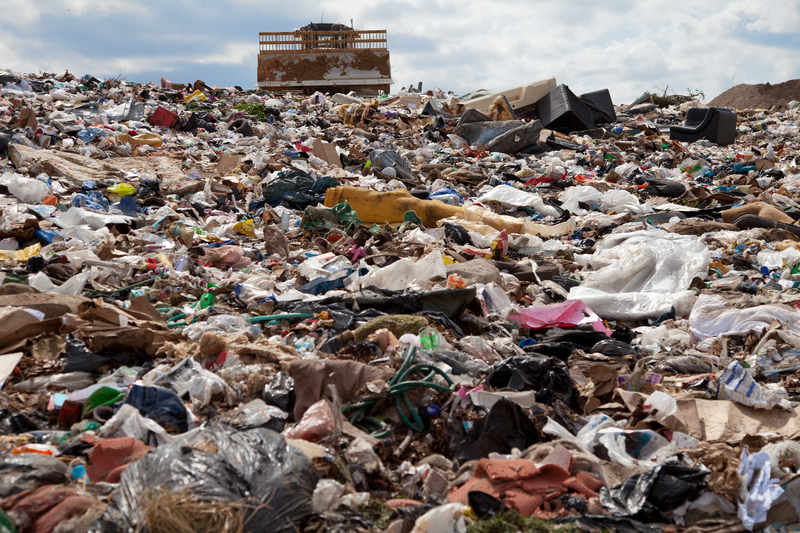The Savvy Homeowner's Guide to Bulky Waste Savings
Are you constantly wondering how to manage those awkward, oversized items collecting dust in your garage or backyard? Bulky waste can be a costly and frustrating issue for homeowners, but with the right strategies, you can save money, simplify your disposal process, and help the environment. This comprehensive guide provides everything you need to know about cutting costs, finding convenient solutions, and becoming a truly savvy homeowner when it comes to bulk waste removal.
What Is Bulky Waste?
Bulky waste (also known as bulk waste or large item waste) refers to items too big for regular curbside trash pickup. These are usually items such as:
- Old mattresses
- Broken furniture (sofas, tables, dressers)
- Large appliances (fridges, washing machines, ovens)
- Lawn equipment
- Carpets and rugs
- Exercise equipment
- Construction debris
Dealing with these bulky items can be tricky and expensive unless you know your options. Homeowners who understand the basics of bulky waste savings can avoid fines, reduce clutter, and keep disposal costs down.

Why Is Bulky Waste Disposal So Expensive?
Traditional trash services aren't equipped to handle bulk waste, forcing homeowners to seek special pickups or haul their waste to landfills themselves. These extra services often come with high fees and strict regulations. Understanding why bulky waste removal costs so much will help you see where savings are possible:
- Volume and weight charges: Many services levy fees per item, by total weight, or by volume (cubic yards).
- Lack of competition: Some areas have limited providers, raising prices.
- Environmental fees: Appliances with refrigerants or electronics require special recycling processes.
- Labor and transportation: Lifting and hauling heavy pieces is time-consuming and fuel-intensive.
Smart Strategies for Bulky Waste Savings
With some research and creativity, even the smallest budget can stretch further. Here's how the smart homeowner finds huge savings on bulk waste disposal:
1. Understand Your Local Services and Schedules
Most municipalities offer free or discounted bulky waste pickups a few times per year. Check your city or county's website for:
- Bulk trash collection days and frequency
- Allowed items and quantity limits
- Special rules for hazardous or electronic waste
- Drop-off facility locations and hours
Planning your disposal around these dates can eliminate costs entirely. Mark your calendar so you never miss a scheduled pickup!
2. Maximize Donation Opportunities
Before you throw away that unwanted couch or dresser, consider donating it. Large charities and nonprofit thrift stores may offer free home pickups for gently used items. Look for:
- Habitat for Humanity ReStores
- Goodwill and Salvation Army branches
- Local shelters and crisis centers
Donation not only saves you money, but helps the community and keeps usable items out of the landfill.
3. Sell or Give Away Bulky Items
Online marketplaces like Facebook Marketplace, Craigslist, and OfferUp allow you to sell large items or even give them away as curb alerts. Include photos, measurements, and clear pickup instructions to encourage quick removal.
Some savvy homeowners even make a profit on their old items instead of paying to dump them!
4. Try DIY Bulk Waste Disposal
If you have a pickup truck or trailer, taking your bulky waste directly to a landfill, transfer station, or recycling center can simplify the process. Tips for saving money at the dump:
- Sort your load; some facilities charge less for clean wood, metals, or separated recyclables
- Check for resident discounts (proof of address may be required)
- Ask about "free dump days" or community cleanup events
Proper sorting and a little effort pays off in lower disposal fees--and you control the timing.
5. Pool Resources with Neighbors
In some cases, teaming up with your neighbors can split the cost of a rental dumpster or private junk removal service. If several households have big items to discard, you'll all save money by sharing transportation and dumping expenses.
Some local neighborhoods also organize annual block-wide bulk trash pickups through their homeowners association--just another reason to stay active in your community!
6. Consider Rental Services or Professional Junk Removal
If you have a large-scale cleanup (for example, a whole house clean-out or renovation project), you may need more than curbside pickup. Compare:
- Small roll-off dumpster rentals (usually sized for tight driveways)
- Professional junk haulers (who do the heavy lifting for you)
Get multiple quotes and ask about volume discounts or specials for mixed loads.
7. Take Advantage of Local Recycling Programs
Bulky waste isn't always trash. Many municipalities recycle large appliances, electronics, and metals--sometimes for free. Some facilities offer cash for scrap materials or rebates on proper disposal of:
- Fridges/freezers (with refrigerant removal)
- Air conditioners and microwaves
- Old computer monitors or televisions
- Bed frames and metal furniture
Check your city's website for up-to-date recycling opportunities and drop-off details.
Hidden Pitfalls: What to Watch Out For
Saving money on bulky waste begins with knowing your rights and responsibilities. Safeguard yourself against unexpected costs or legal troubles:
Illegal Dumping Is Never a Solution
Never dispose of bulk items on public land, in vacant lots, or roadside ditches. Illegal dumping can result in stiff fines and environmental damage. Even leaving items outside your curb pickup day could incur penalties from your town or your homeowners association.
Understand What Items Are Banned
Most cities ban certain hazardous or hard-to-handle items from standard bulk waste programs, such as:
- Paint, solvents, and chemicals
- Propane tanks
- Tires and car batteries
- Large construction debris (unless properly bagged)
Be sure to read your local regulations, or ask your waste management provider for lists of acceptable materials.
Eco-Friendly Bulky Waste Disposal Tips
A truly savvy homeowner cares about both their wallet and the environment. Here are some ways to keep your bulk waste disposal as eco-friendly as possible:
- Repair and reuse. Try to fix or refurbish large items before discarding them.
- Upcycle creative projects. Search for DIY ideas to turn spare doors, tables, or lumber into something new.
- Choose recyclers. Whenever possible, deliver items to a recycling facility instead of the landfill.
- Host a community swap. Organize a neighborhood exchange event to give unwanted bulky items a second life.
These strategies not only keep useful resources out of landfills but can also foster a stronger, more connected community.
Frequently Asked Questions About Bulky Waste Savings
How often can I schedule bulk waste pickup?
Pickup frequency depends on your district--typical schedules are monthly, quarterly, or annually. Some communities allow residents to request additional pickups for a fee.
How much are bulky waste dumping fees?
Fees vary widely. Many cities offer one or two free pickups per year, but extra pickups can cost $25-$100 per item. Dump sites may charge by item, by weight (per ton), or per load (per cubic yard).
What happens if I leave bulk waste out on the wrong day?
Most towns specify certain bulk waste collection days. Putting items out early or on unscheduled days may result in code violations or fines.
Can I dispose of construction debris with bulk trash?
Small household DIY debris (like a small pile of lumber or old carpet rolls) may be allowed. For larger remodeling projects, you'll need a roll-off dumpster or haul debris to a transfer station separately. Always check with your local waste authority.
Is it environmentally friendly to use junk removal services?
Many reputable junk removal companies sort and recycle most of what they collect. Ask companies about their recycling and donation practices before hiring, to ensure your waste gets processed responsibly.

Actionable Checklist: Bulky Waste Savings for Homeowners
- Survey your home. Make a list of all large items you need to discard.
- Research your local bulky waste policies, including free pickup schedules and acceptable items.
- Contact charities or donation centers. Arrange free pickup or drop-off for reusable goods.
- List sellable items online. Use local marketplace apps to give away or sell gently used pieces.
- Plan ahead for large projects. If remodeling, compare dumpster vs. junk removal services and split costs with neighbors if possible.
- Separate recyclables from true trash. Locate your community's recycling drop-off centers for metals, e-waste, and appliances.
- Mark your calendar. Note all scheduled city bulk waste collection days to avoid missing your spot!
- Stay compliant. Never dump illegally or leave items exposed longer than allowed--protect both your wallet and the environment!
Conclusion: Save Money, Time, and the Planet
The savvy homeowner treats bulky waste not as a nuisance, but as an opportunity. With smart bulk waste management, you will:
- Cut or eliminate disposal costs
- Contribute to local recycling efforts
- Streamline home decluttering
- Protect yourself from fines or code violations
- Boost your home's value and curb appeal
If you take the time to research options, plan ahead, and use community resources, you can achieve maximum bulky waste savings while doing your part for the planet. Bookmark this guide for future cleaning, renovation, or moving projects. Your wallet--and your community--will thank you!
Ready to become a bulky waste expert? Start taking action today and enjoy a cleaner, more organized, and cost-efficient home.